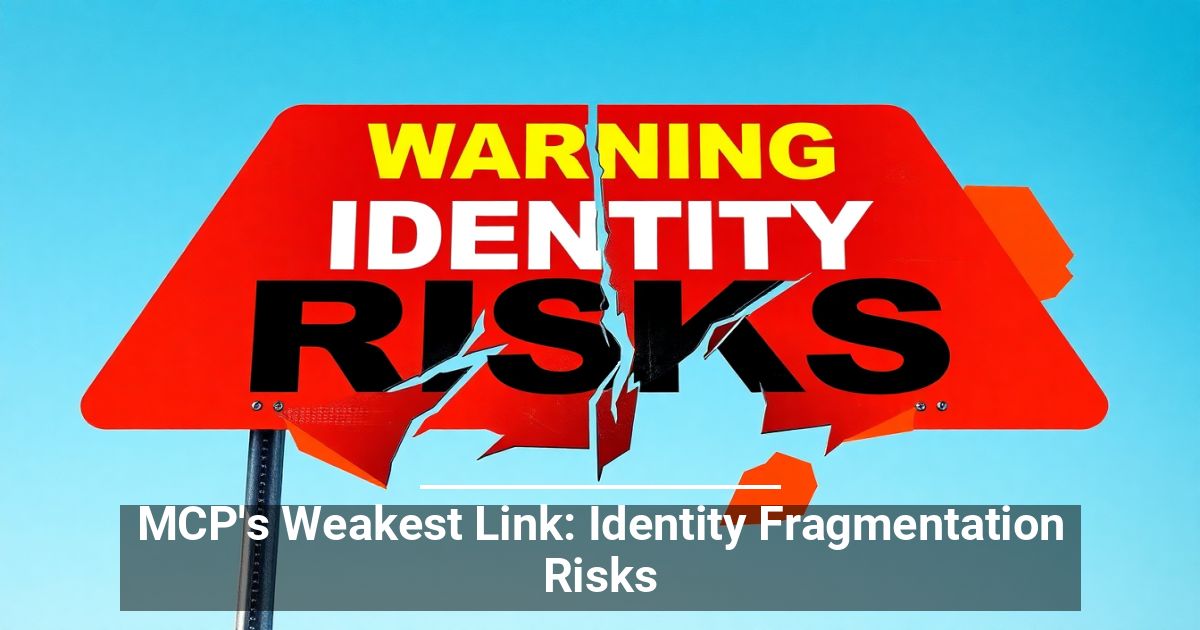 Every new technological breakthrough gets us excited about possibilities. That is, until security vulnerabilities we didn't see coming bring us back to reality.
Every new technological breakthrough gets us excited about possibilities. That is, until security vulnerabilities we didn't see coming bring us back to reality.
Artificial intelligence isn't immune to this trend, and the Model Context Protocol (MCP) serves as a testament to this point. While MCP has unlocked new possibilities for engineers, it has also opened the door to a dangerous security issue: identity fragmentation risks.
The Promise of MCP
MCP is a translator for large language models (LLMs). Instead of working in isolation, LLMs can now "talk" with databases, tools, and even people in a common language. This lets AI systems access private data beyond their original training datasets.
It's easy to see why companies are jumping on the MCP train. It means smarter, more responsive AI that leverages real business data to deliver actionable insights, automate tasks, and enhance customer interactions. However, the very thing that supplies this power is also a risk.
Why Scattered Identities Are MCP's Hidden Weak Spot
Here's the problem with MCP: every new pathway it creates for data sharing is another potential entry point for attackers. Giving LLMs access to different systems is useful, but the big question becomes: How are we controlling and monitoring which LLMs can access these systems?
This is where the risks show up. Identity fragmentation occurs when an AI system accumulates multiple digital identities across different platforms. It's like having several sets of keys to the same house. And if your AI tool is juggling five sets of keys, how confident are you that none will get lost?
Authentication Risks and Data Privacy Challenges for Businesses
Managing MCO security has high stakes for businesses. AI tools connected through MCP often handle sensitive information, including customer records, financial data, and intellectual property. Fragmented digital identity management makes it much harder to protect that data.
Companies struggle because more access points mean more opportunities for attackers to exploit. Multi-cloud architecture makes it challenging to unify identity management across AWS, Azure, Google Cloud, and private servers. The more MCP servers your business relies on, the more likely it is that poor management will lead to exposure.
There's also the issue of authentication. Weak or inconsistent authentication opens the door to unauthorized access, and a single overlooked identity could expose confidential customer or employee information. Since most breaches start with a simple mistake, this is a significant concern.
Smart Ways to Stay Ahead of Fragmentation Risks
So, how do you protect your company from identity fragmentation risks without compromising the benefits of MCP? It starts with awareness. It's imperative to ask the right questions of your IT and security teams. Start with:
- Are we managing all digital identities centrally?
- Do we have strict access control policies in place?
- How often are we auditing permissions across our systems?
- What authentication methods are we using, and are they consistent across all platforms?
New technology will always be playing catch-up with security; that's the nature of innovation. But the companies that think about identity fragmentation risks now will have a serious competitive advantage when the inevitable security incidents start making headlines.



